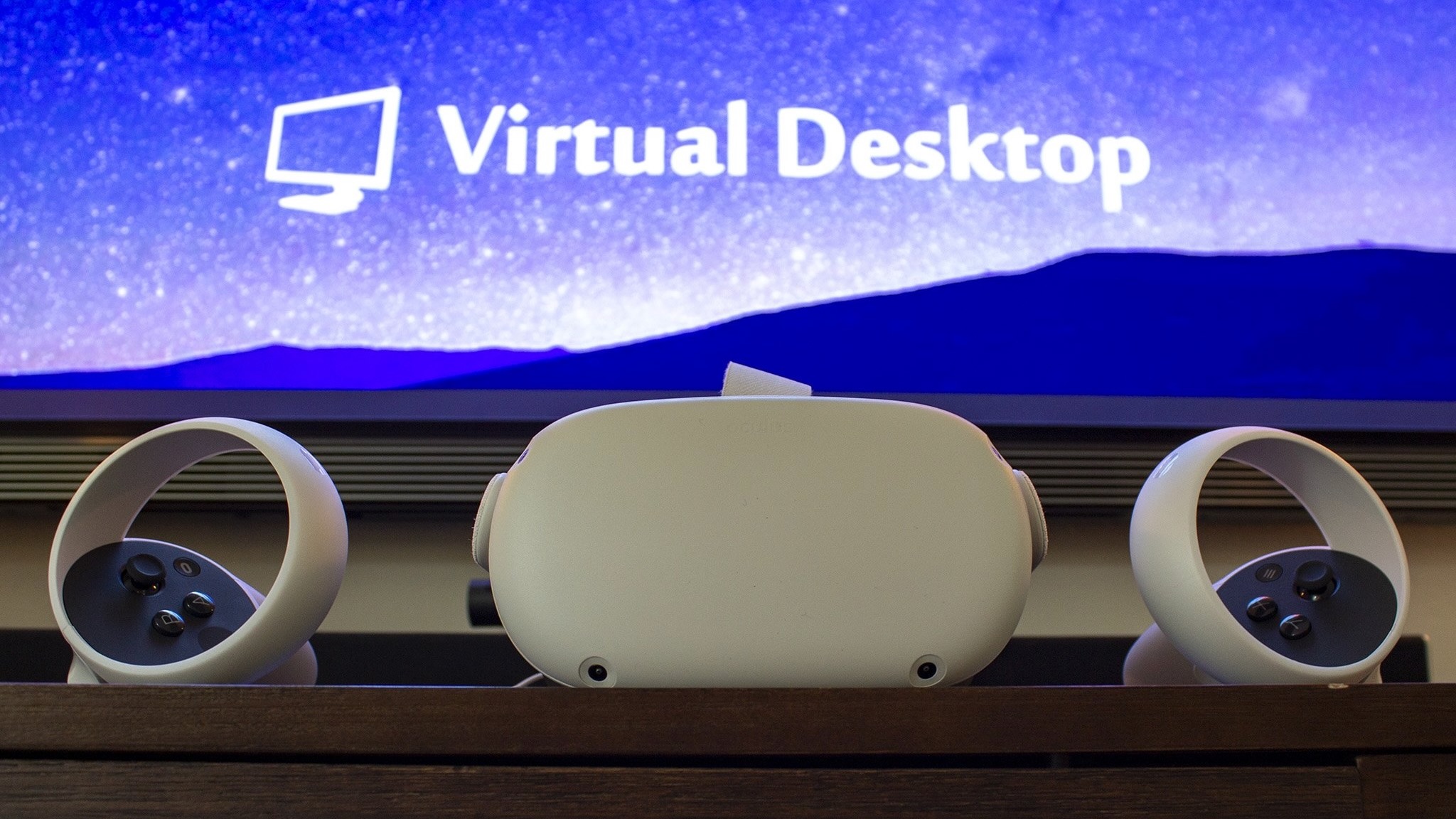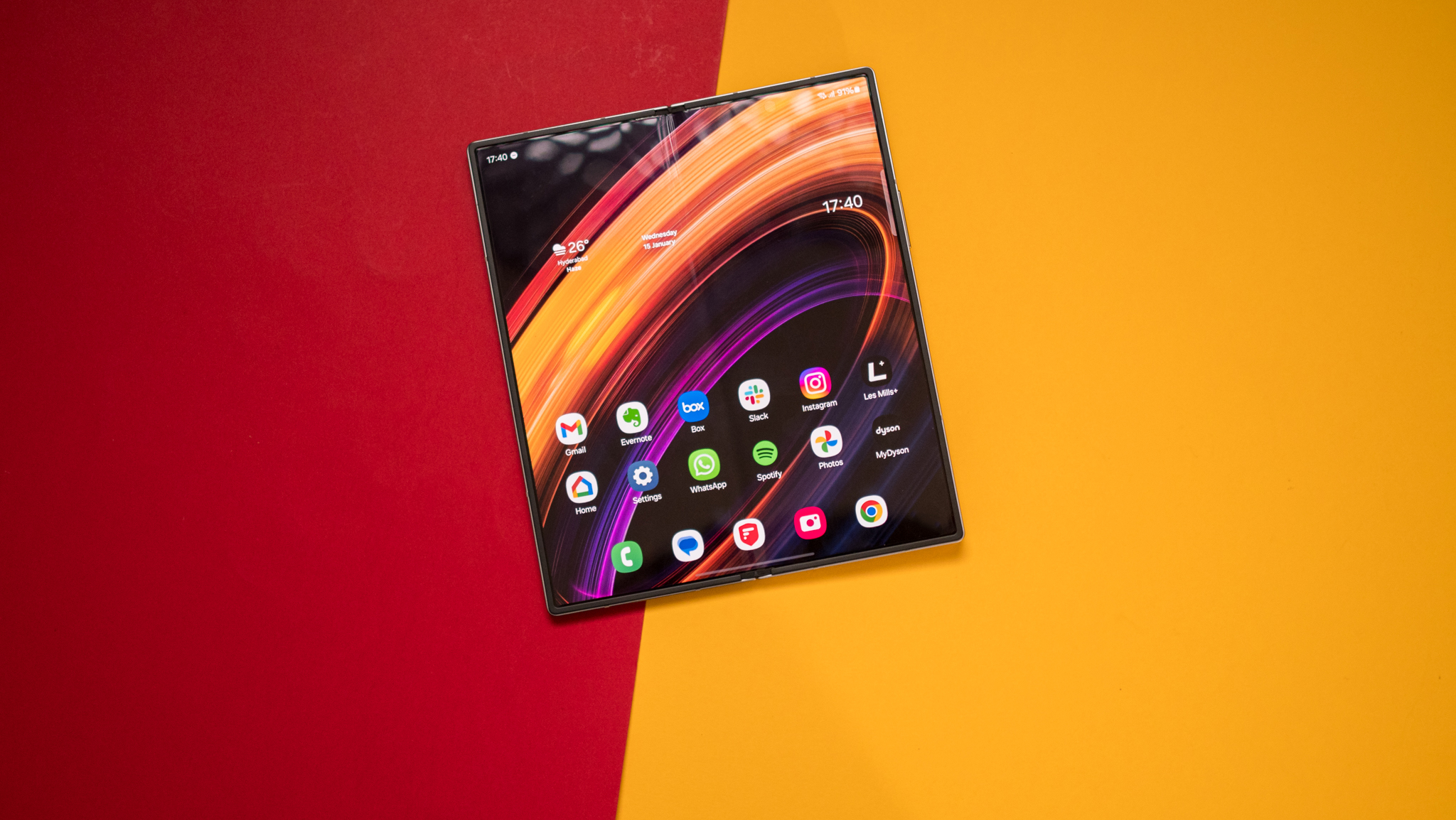Avalanche leak suggests cloud gaming could come to Oculus Quest
History is repeating itself, as Meta blocks other cloud gaming apps while allegedly working on its own.

What you need to know
- A Redditor leaked to XR hardware analyst Brad Lynch that they had tested an official cloud gaming tool on the Oculus Quest 2.
- Called Avalanche and currently in alpha testing, it would let you play PC VR games without your own PC.
- Meta currently does not allow cloud gaming apps in the Oculus Store.
- We've reached out to Meta for comment.
XR hardware analyst and frequent leaker of Oculus hardware Bradley Lynch tweeted on Thursday that someone "had access to the Cloud PC VR Streaming functionality Meta is internally testing." That person reportedly played "a totally remote game of Asgard's Wrath via a UK Wifi5 session" and shared proof with Lynch.
Lynch went on to say that the "quality was not very good for the user," most likely due to the physical distance between the UK and Meta's servers.
Someone contacted me (and posted on Reddit) claiming they had access to the Avalanche Cloud PC VR Streaming functionality Meta is internally testingThey stated they were able to get into a totally remote game of Asgards Wrath via a UK Wifi5 session https://t.co/Iulq6G24zX pic.twitter.com/gnZMkN0xzUMay 27, 2022
The reference to Avalanche was first found buried in the code of the v24 Quest update in late 2020. We're now on the v40 update, which would indicate Meta has spent the past 1.5 years working on the technology. This leak doesn't mean Meta will make Avalanche available soon, however.
We've reached out to Meta for comment and will update this post if we learn more.
Meta currently does not allow cloud gaming apps on the Oculus Quest 2; its developer guidelines specifically state that "Applications that stream interactive, immersive VR content may only do so from a local PC that the customer has physical access to."
As such, cloud VR gaming apps like Plutosphere currently require sideloading through a developer account. If Avalanche does come to the Meta Quest 2, it'll be the only option available officially, though only via the Experimental features menu.
In theory, Avalanche — or cloud Air Link, as one could call it — would allow Oculus Quest and Quest 2 owners to play the best Rift games without needing their own Quest-ready gaming PC or an Oculus Link cable. But we don't know yet what kind of download speeds, bands, or ping will be required, nor whether it'll be supported globally.
Be an expert in 5 minutes
Get the latest news from Android Central, your trusted companion in the world of Android
Avalanche would, in theory, require Meta to make its servers or PCs available for gamers to use. Stadia and Xbox Game Pass both charge a monthly fee for cloud gaming, while indie cloud gaming platforms like Shadow and Plutosphere also charge a fee. Meta could also charge a similar fee to use Avalanche.
If you have a friend with a gaming PC, they could authorize you to play PC VR on it from your house.With USB3 instead of h264/265, we could use a custom codec that has lower compression, but also lower latency and possibly higher quality without YUV conversion and sub sampling.October 29, 2021
It's also possible Avalanche could work locally. Oculus Consulting CTO John Carmack mentioned during the Connect 2021 event that you might be able to use a "friend's Air Link" to play PC VR games, then tweeted that you could "authorize" someone to use your PC remotely on their headset.
Analysis: We've been here before

Guy Godin launched Virtual Desktop as a way to emulate your PC on your Oculus Quest without a Link cable, and added tools to let you play wireless PC VR games at high refresh rates. But Meta made developer Guy Godin roll back the feature and focus solely on PC emulation before it could return to the Oculus Store. Then Meta launched its own wireless VR gaming service, Air Link.
Similarly, Oculus blocked YUR, a fitness tool meant to track your burned calories across VR exercise games, for about a year without much justification. Then Oculus Move arrived with similar features, prompting frustration from the developers.
If the rumor is true that Meta plans to bring cloud gaming to the Meta Quest 2, then, it's no surprise that it has blocked apps like Plutosphere from the main store, ensuring only people comfortable with sideloading will ever use it. That way, when Avalanche or cloud Air Link launches, Meta won't have any cloud VR rivals to get in the way.
The competition aspect aside, it'll be interesting to see how Meta would handle this feature. Would it actually give you cloud access to a remote PC, as Plutosphere offers, and make you download games onto it?
Or would it let you directly play games via a PC VR emulator, similar to Game Pass or Stadia? If this is the case, it's unclear if Avalanche would be restricted to Oculus Rift titles or would also incorporate games bought through Steam VR like Half-Life: Alyx.
PC VR games don't sell well compared to Quest Store games. But a native cloud gaming solution could let gamers experience better graphics and physics that a standalone headset can't offer. It'll just depend on whether Meta can deliver quality streaming speeds; otherwise, the latency would destroy the immersion.

Michael is Android Central's resident expert on wearables and fitness. Before joining Android Central, he freelanced for years at Techradar, Wareable, Windows Central, and Digital Trends. Channeling his love of running, he established himself as an expert on fitness watches, testing and reviewing models from Garmin, Fitbit, Samsung, Apple, COROS, Polar, Amazfit, Suunto, and more.
